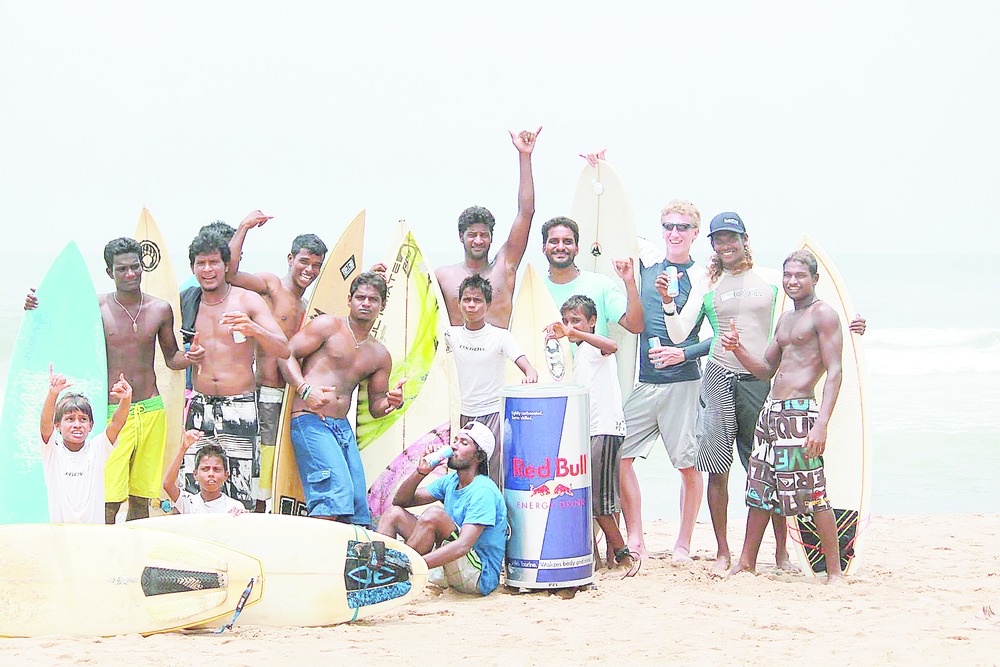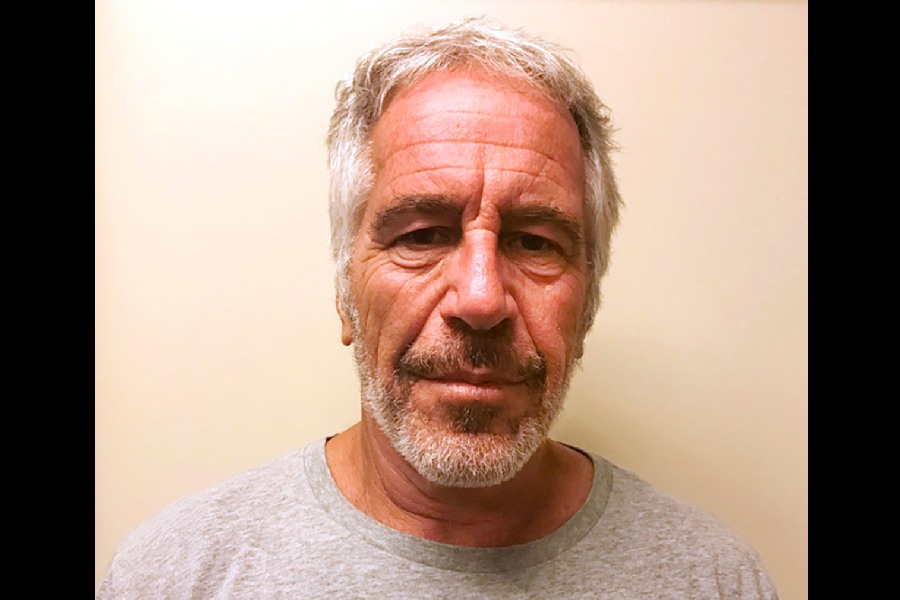
Turn off the National Highway 17, which connects Mangalore to Udupi, and you drive into the lush, coconut tree-lined fishing village of Kodi Bengre. This is where Tushar Pathiyan and Ishita Malaviya ride the sea waves for a living.
When Pathiyan moved to Manipal in Karnataka to study architecture, little did he know that he'd be pitching tents and teaching people how to surf. But once he'd converted an abandoned, run down little hut into the headquarters of the Shaka Surf Club in 2011, there was no looking back.
About 170 people have learnt surfing at the club so far. "When we started, 70 per cent of our clients were foreigners. Now, most are Indians - mostly young professionals from Mumbai," says the 27-year-old surfing instructor and club proprietor.
Seeing the surfing camp - with tents and a beach shelter, nestled between the Arabian Sea and the emerald backwaters of the river Suvarna - it's easy to see why Pathiyan and Malaviya, a journalism graduate, traded money-making Mumbai jobs to be out in the sea.
"I was hooked on surfing from the day I rode my first wave," says Malaviya, who is also India's first professional woman surfer.
While the Shaka Club mixes surfing with barbecues and bonfires, the Mantra Surf Ashram in Mulki - a one-horse town located 40km from Mangalore and surrounded by dazzling paddy fields - serves surfing lessons with a dash of yoga and meditation.
Mantra was set up in 2004 by American Jack Hebner - now known as the Surfing Swami - who came to India in the 1970s looking for spiritual guidance and discovered some great surf spots along the way.
Dressed in saffron robes and surfing shorts, Hebner lives up to the name he's been given. At 70 years, he doesn't venture into the waves very often, but business is booming for Mantra. "About 500 people come to the club every surfing season. And 90 per cent of our clients are Indians," he says.
Hebner has seen surfing grow from a sport that Indians only saw on Baywatch to topping holiday to-do lists. "Ten years ago, you could barely round up a dozen surfers. But when we hold a surf contest now, about 200 adults and teens show up to participate," he says.
Clearly, much has changed in Mulki and along India's 7,200km coast in the last few years. Surfing is catching on among urban Indians as a holiday hobby and adventure sport. "Riding the waves has become the cool, new thing to do among young Indians," he says.
Supply, of course, is responding to demand. About a dozen surf schools dot the Indian coastline - from Visakhapatnam, Pondicherry and Chennai in the east to Kovalam, Mangalore and Goa on the Arabian Sea coast. Mangalore alone has three surf schools within striking distance of the town.
Surfing festivals and competitions are drawing crowds to once-anonymous fishing villages such as Covelong, near Chennai.
Next year India is expected to send a team to participate in the World Surfing Games, says Kishor Kumar, president of the Surfing Federation of India (SFI). "This will give more legitimacy to Indian surfing, which is so far seen merely as an adrenalin-pumping weekend hobby," he adds. The SFI also conducts surf instructor certification courses and keeps a quality control check on surf schools.
Surfing is a $6 billion industry globally. While riding an ocean wave may be free, the equipment comes at a steep price. Surfboards cost between Rs 25,000 and Rs 70,000 a piece. "The high cost kept the sport away from India so far. But as disposable incomes grow, urban Indians are discovering surfing," says Partha Varanashi, who runs the Stoked Surfers Club at Tannirbhavi beach near Mangalore.
.jpg)
Moreover, adventure sports and health consciousness are picking up in India. "Like river rafting and bungee jumping, surfing is also gaining huge traction," Varanashi adds.
The surfer was studying biotechnology at the University of Adelaide, Australia, when he surfed for the first time. And he was hooked. "When I returned to India and told people about surfing, they thought I meant browsing the Internet," he recalls.
That was then. Now, with four instructors and a gear of 15 surfboards, Varanashi has trained 40 people at his one-year-old surf club. He also conducts the Indian chapter of the global Surf Life Saving programme. "About 50 people have cleared level one and another 160 have signed up," he says.
With more and more Indians riding the wave, global surf brands are smelling the money. Most of the industry biggies - Quiksilver, Rip Curl and women's surf gear firm Roxy - have a stake in the Indian surf scene, says Hebner. Mantra is also finalising a tie-up with French sports firm Decathalon to provide surfboards, rash guards and other gear to the club. Rip Curl sponsored a surf safari in Lakshadweep earlier this year.
An entire industry is sprouting around the sport. Besides growing surf tourism, surfing enterprises have been set up to cater to the sport. The Mysore-based Surf Adventures imports surfing gear and equipment for the India market. "We sell about two to three surfboards a month. Sale has picked up in the last two years, with individual surfers buying boards," says proprietor Kishore Kumar.
A company in Mahabalipuram, Temple Surfboards, hires local sculptors - who used to make little Ganesha idols out of stone to sell to tourists - to sculpt high-end fibre glass boards. And at least one professional photographer, Rammohan Paranjape, has now fashioned himself into a dedicated surf photographer, shooting wave riding expeditions across India.
The buzz around surfing is clearly on the ascent. In September, the third annual Covelong Point Classic Surf Contest and Music Festival, held near Chennai, attracted about 10,000 people. It also had its share of celebrity turnout - with former South African cricketer Jonty Rhodes playing the official brand ambassador.
Murthy Meghavan, who set up the Covelong Point Surf School, wasn't quite expecting such huge footfalls. "In the first two years of the festival, we had an attendance of about 4,000 people. This year, people just kept pouring in," says Meghavan, who conceived the idea of a mashup festival - with surfing, yoga, music, kayaking and catamaran racing.
Besides the Covelong carnival, annual surfing festivals are now held in Konark, the India Surf Pro on Visakhapatnam, the Spice Coast Open in Kerala and the Manapad Classic in Tamil Nadu.
Surfing is making waves away from the sea, too. Mantra's Hebner is going to be on television soon - anchoring a surfing show on the health channel, Brilliant Living TV. Shaka tied up with Quiksilver to make a documentary on the surf scene in India, The Rising Tide, earlier this year. Shaka's Malaviya adds that she was invited by Roxy to showcase its Spring Summer Collection in Ibiza, Spain, in 2012.
"My presence put Indian women surfing on the world map," she says.
Surfing, clearly, is riding high.










